B-25 Mitchells shot to instant fame with the Doolittle Raid on Tokyo months after Pearl Harbor.
But, the planes proved useful in other roles as well.
As the modifications developed, the bombardiers compartment was eliminated, and the glass nose was normally faired over.
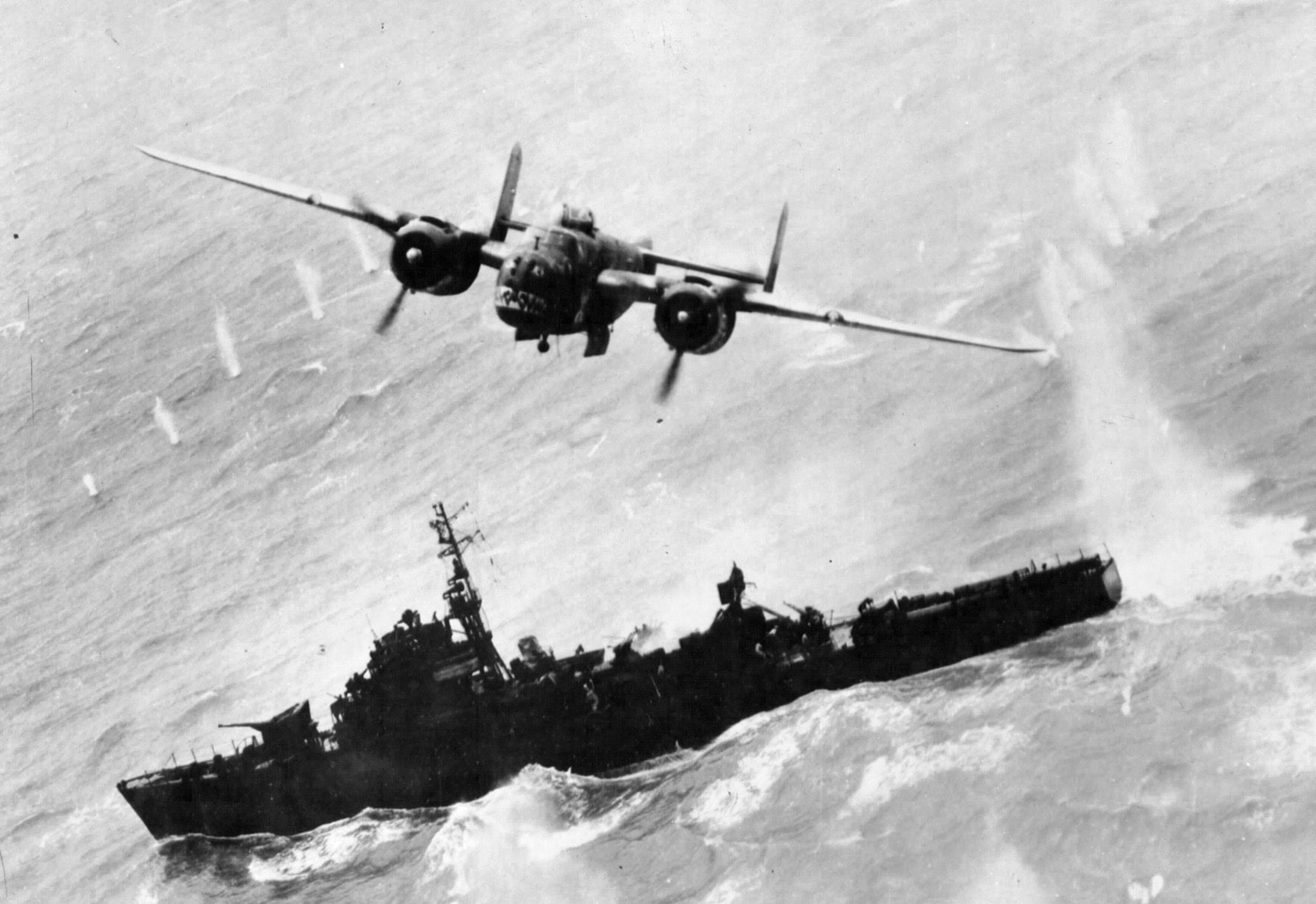
A B-25 gunship of the 345th Bomb Group “Air Apaches” pulls up after a strafing attack on a Japanese convoy escort off the coast of China in April 1945. Image: NARA
While the benefits of the B-25 gunships were quickly apparent, the USAAF supply ofBrowning AN/M2 .50-cal.
MGswas sorely limited throughout the SW Pacific area.
Japanese supply convoys were strafed and skip-bombed to the bottom of the Pacific.
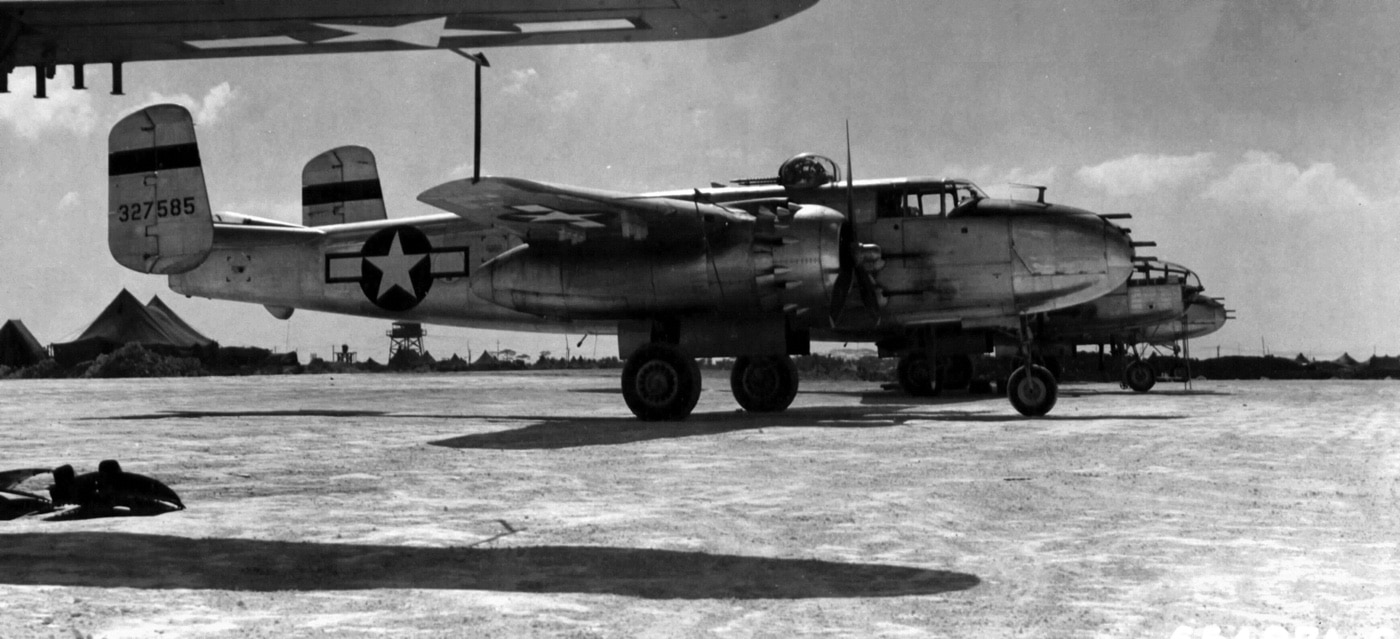
These B-25J gunships were based on Iwo Jima during the summer of 1945. Theairfields on Iwo Jimawere important in the Allied war against Imperial Japan. Image: NARA
Some of the parachute-slowed bombs contained phosphorus, setting fire to whatever the frags tore open.
This was remedied by providing heavier gauge patches to reinforce the fuselage skin.
When used as a flexible gun the AN/M2 used butterfly triggers.
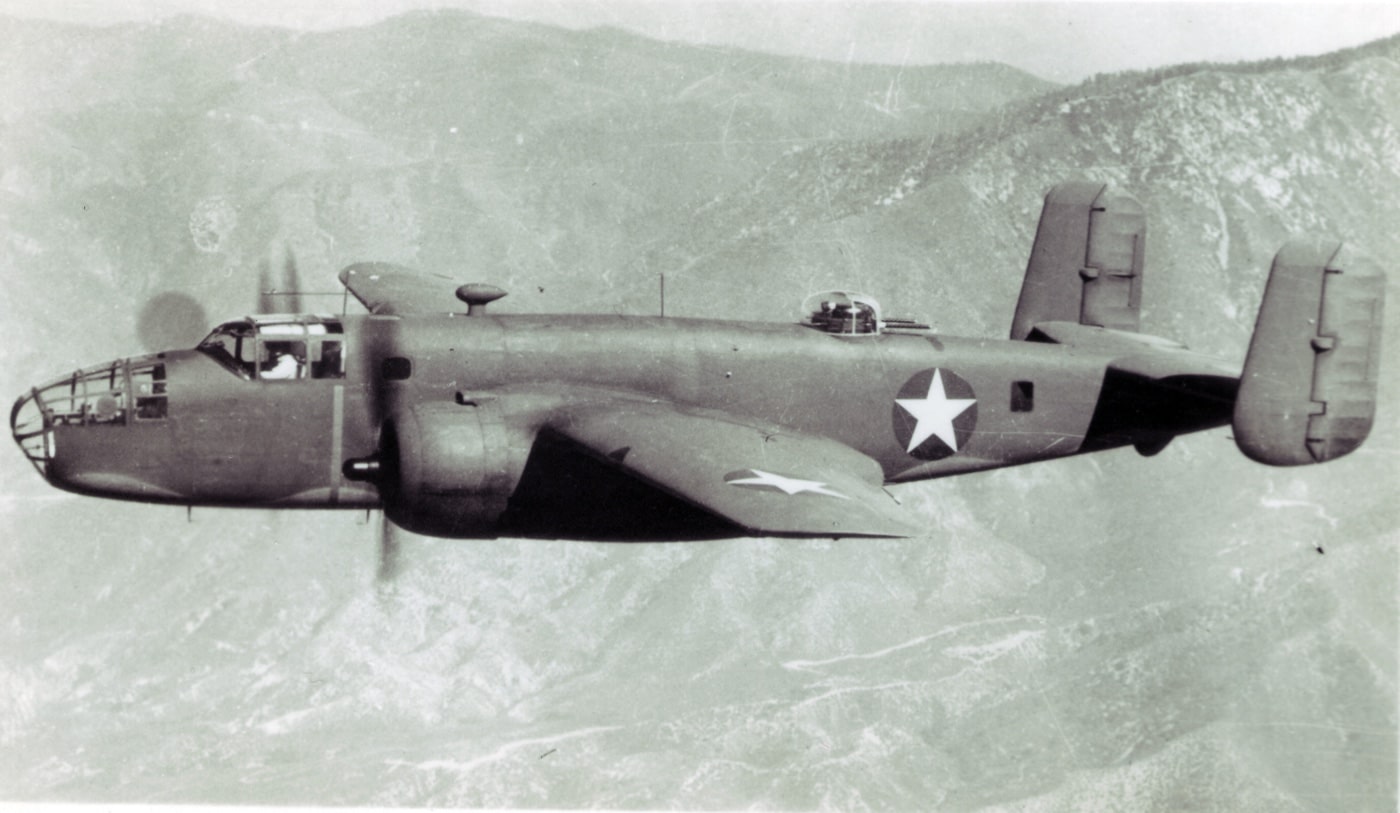
The North American B-25B Mitchell medium bomber was introduced in 1941. Image: NARA
The lighter barrel of the AN/M2 was effectively cooled by the aircraft slipstream.
The AN/M2 armor-piercing rounds could penetrate 20mm of armor plate at 500 yards.
Woe came to all things in its path.
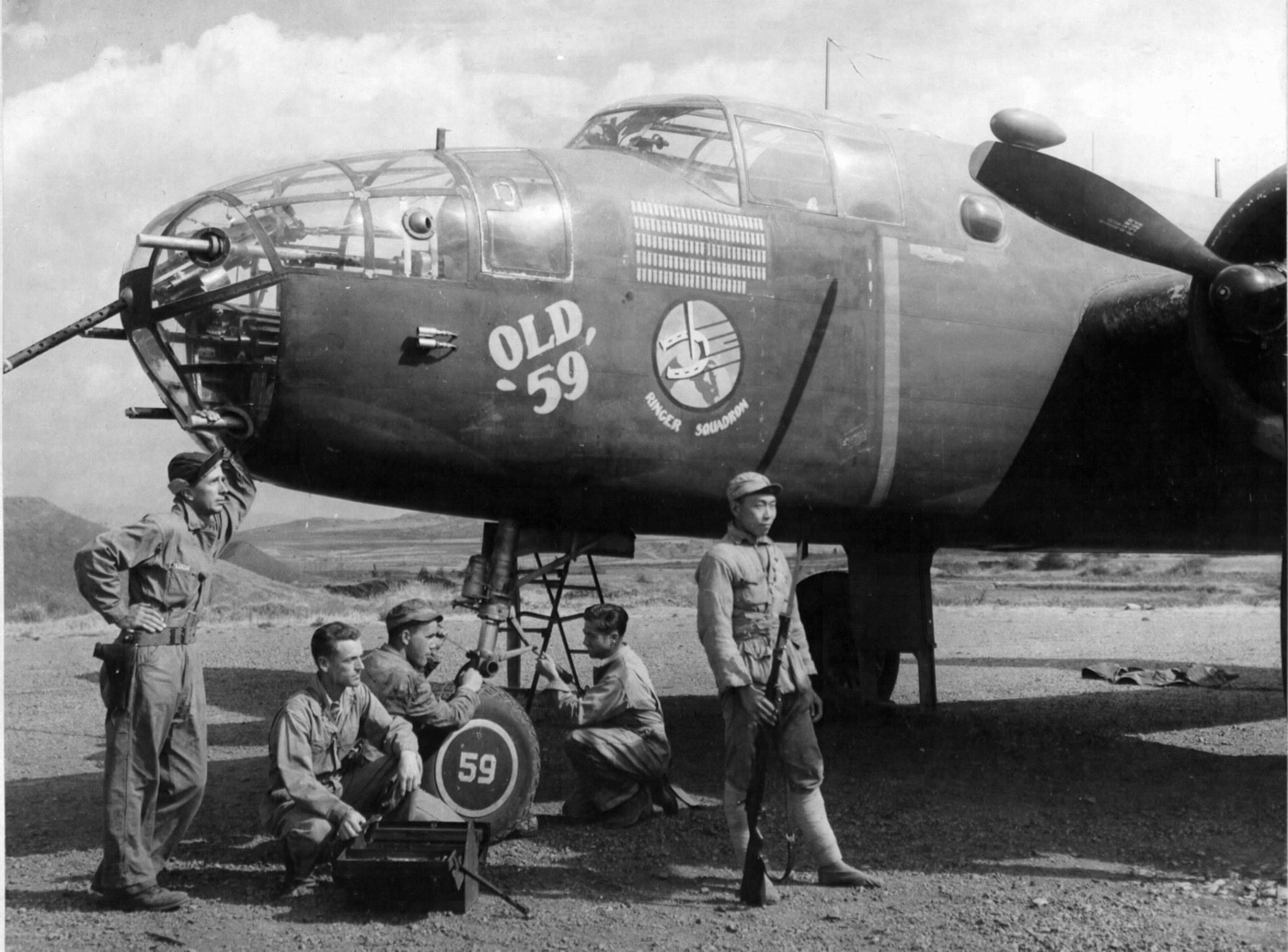
U.S. 5th Air Force mechanics have modified the “glass nose” of a B-25 to include four M2 .50 caliber machine guns fired in tandem by the pilot. Image: NARA
The M4 75mm cannon was 9 12 feet long and weighed approximately 900 pounds (without ammunition).
Storage for 21 rounds of 75mm ammunition was standard.
Its performance was acceptable, but ultimately there were better solutions available.
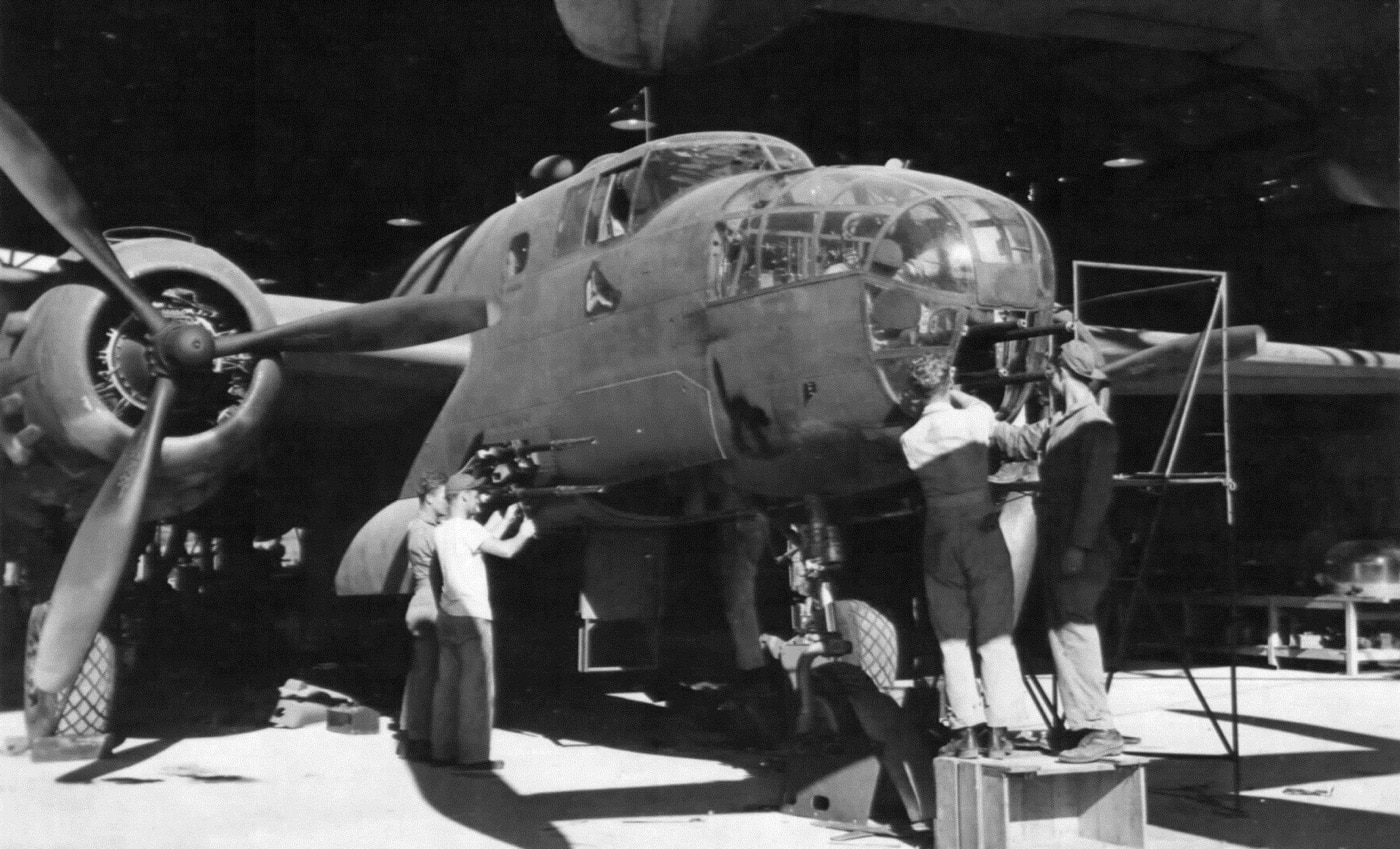
Field modifications created the twin-.50 cal MG “cheek packages.” Note the additional plate added to protect the fuselage from big .50 BMG cartridge’s powerful muzzle blast. Image: NARA
The later Douglas A-26B carried up to eight .50-cal.
guns in a solid nose package.
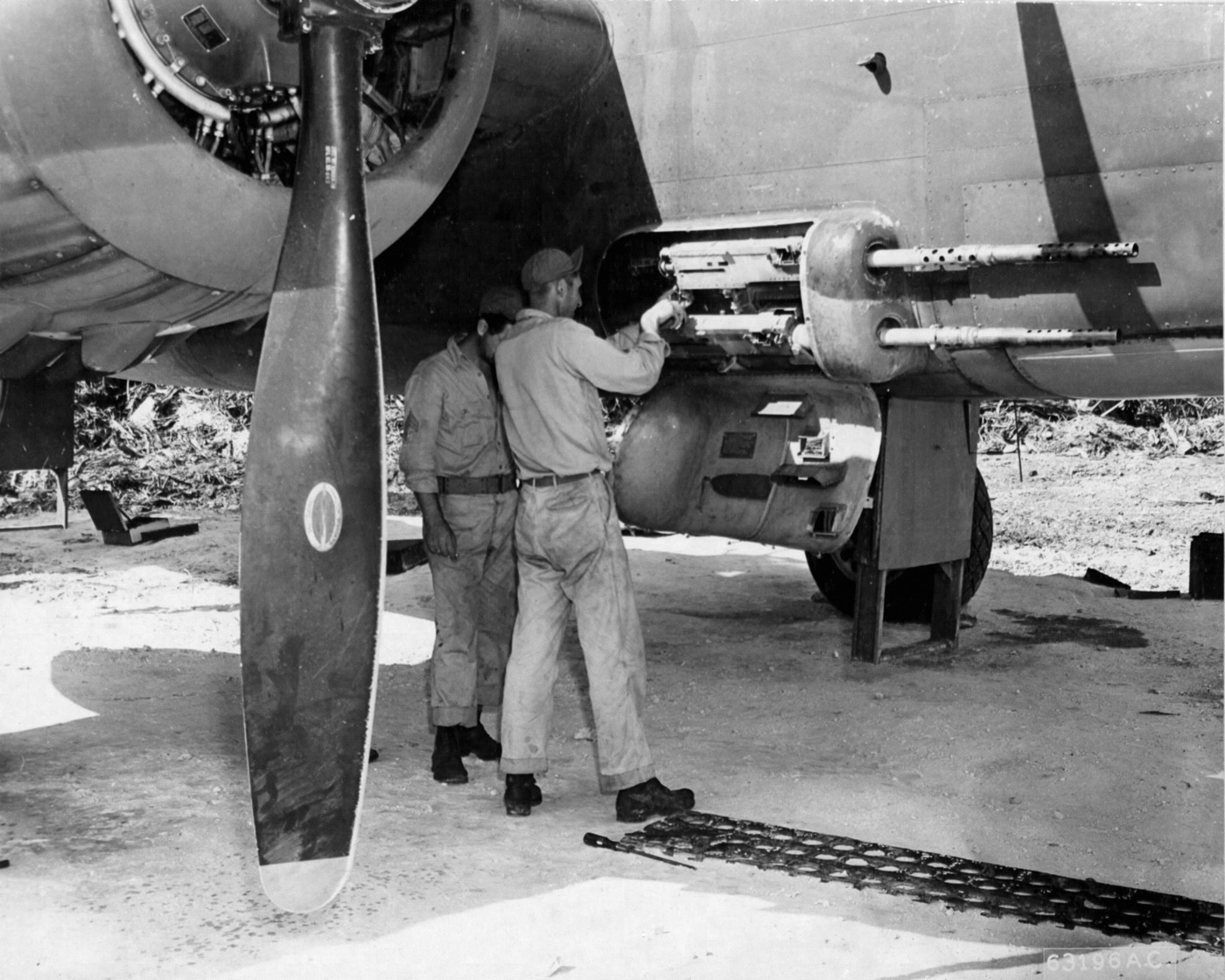
A ground crew maintains the .50 cal “cheek guns” of a B-25 operating from the Gilbert Islands in late 1943. Image: NARA
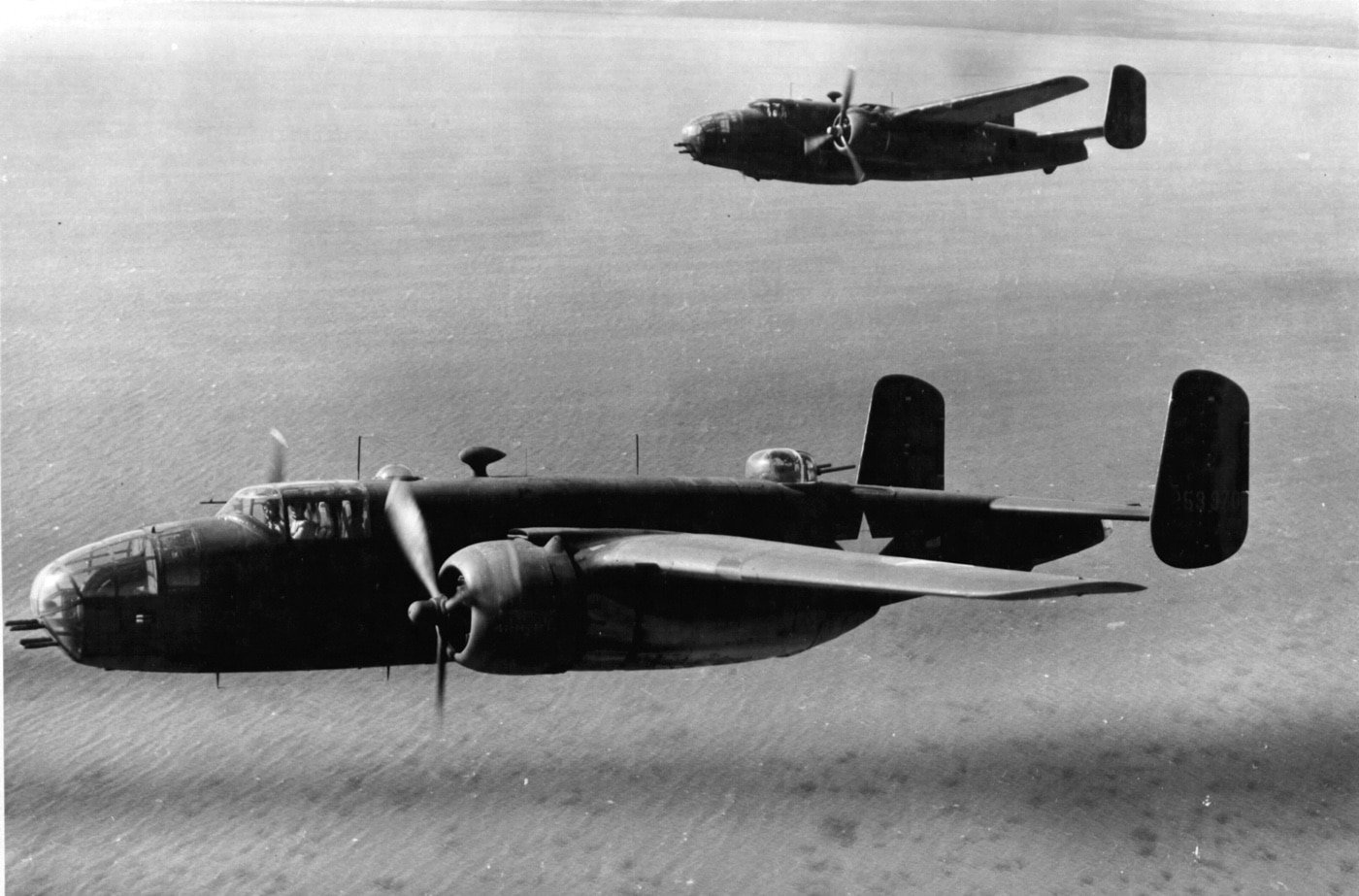
Modified B-25 gunships head out for a strafing and skip-bombing mission in the Solomon Islands. Image: NARA
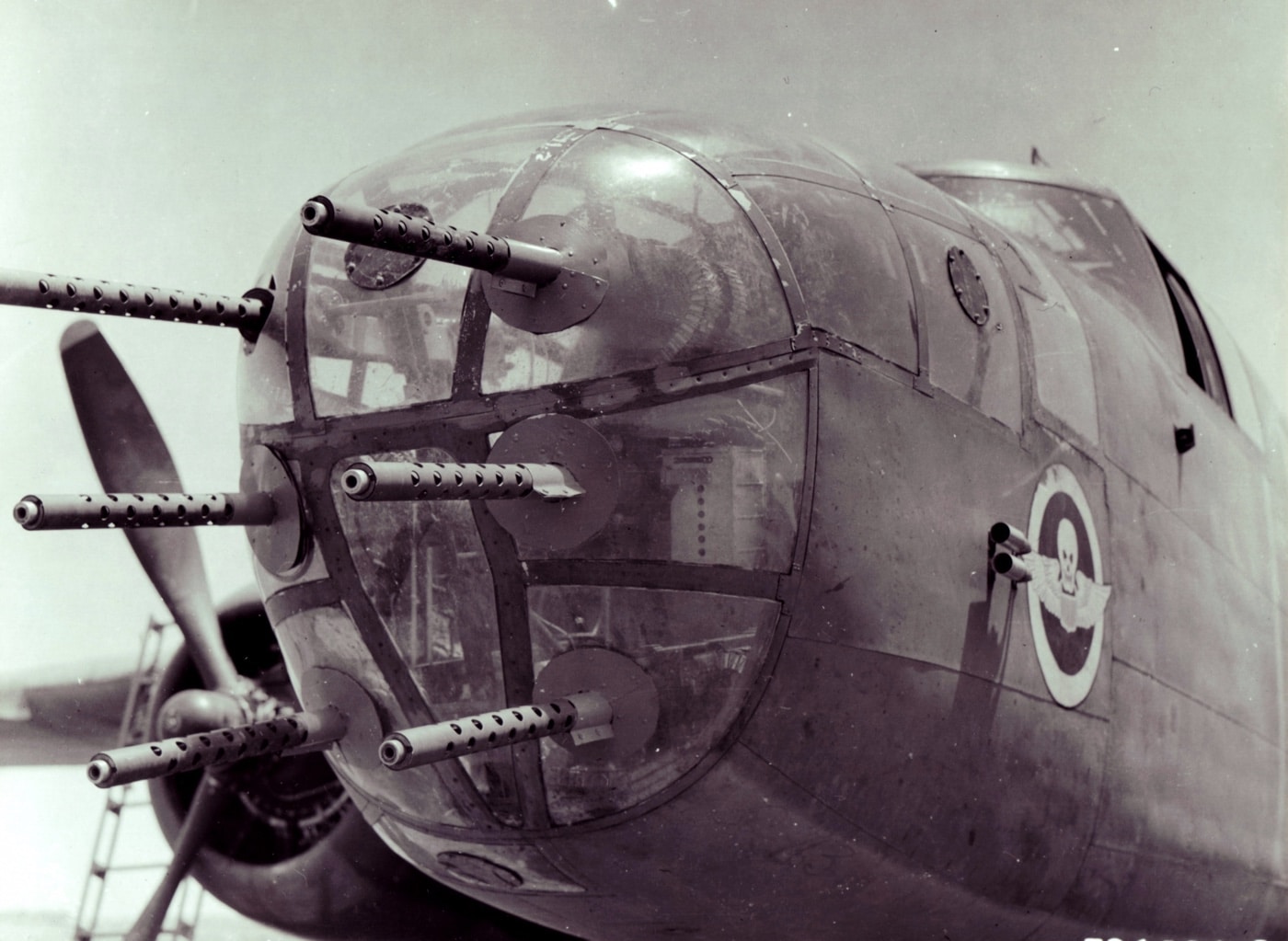
Six .50-cal. machine guns protrude from the glazed nose of this B-25 serving with the 490th Bomb Squadron in China during 1944. Image: NARA
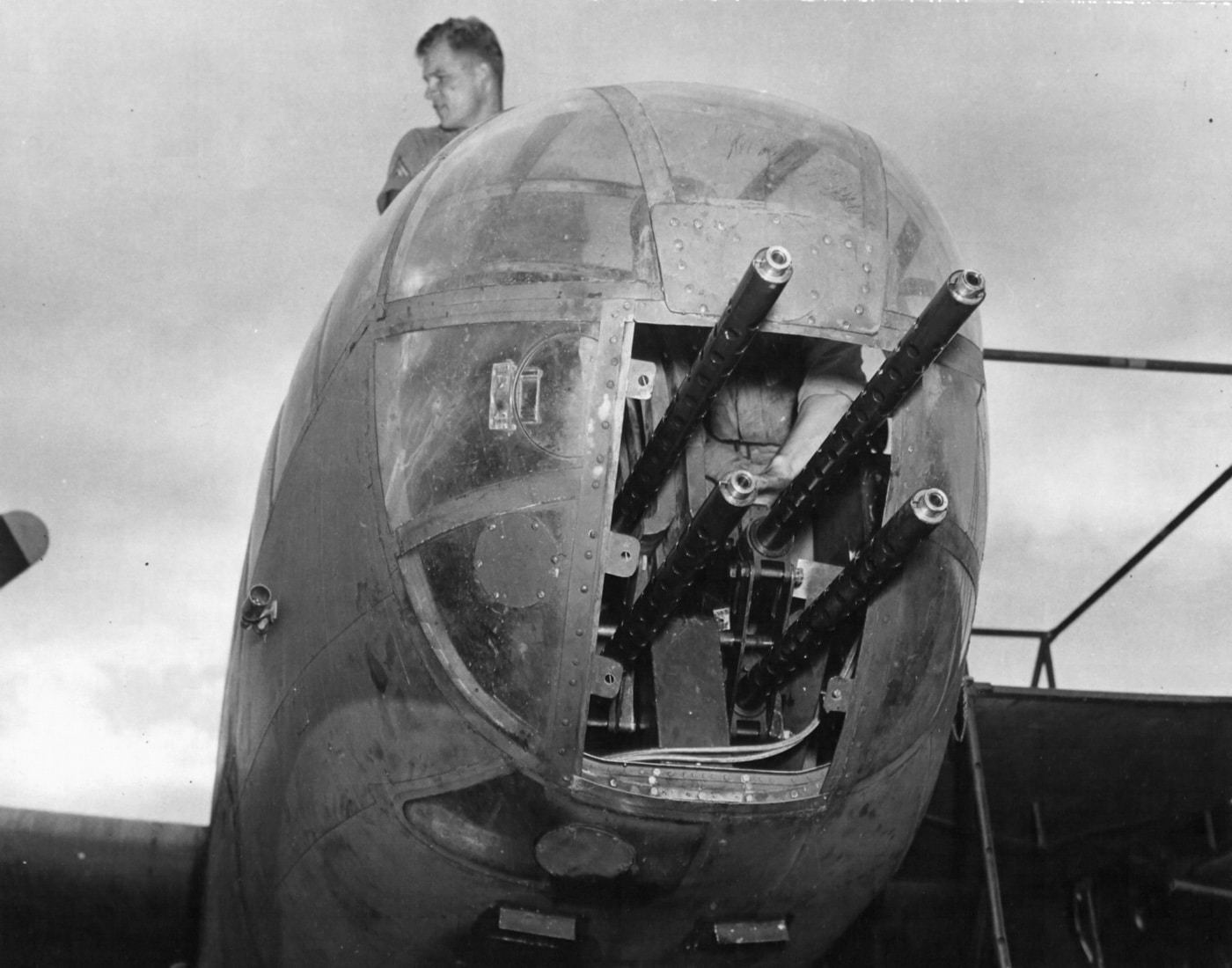
A B-25 bomber undergoes gunship modifications in New Caledonia in December 1942. Mechanics modify the glass nose of a B-25 to include a package of four M2 .50 caliber machine guns. Image: NARA
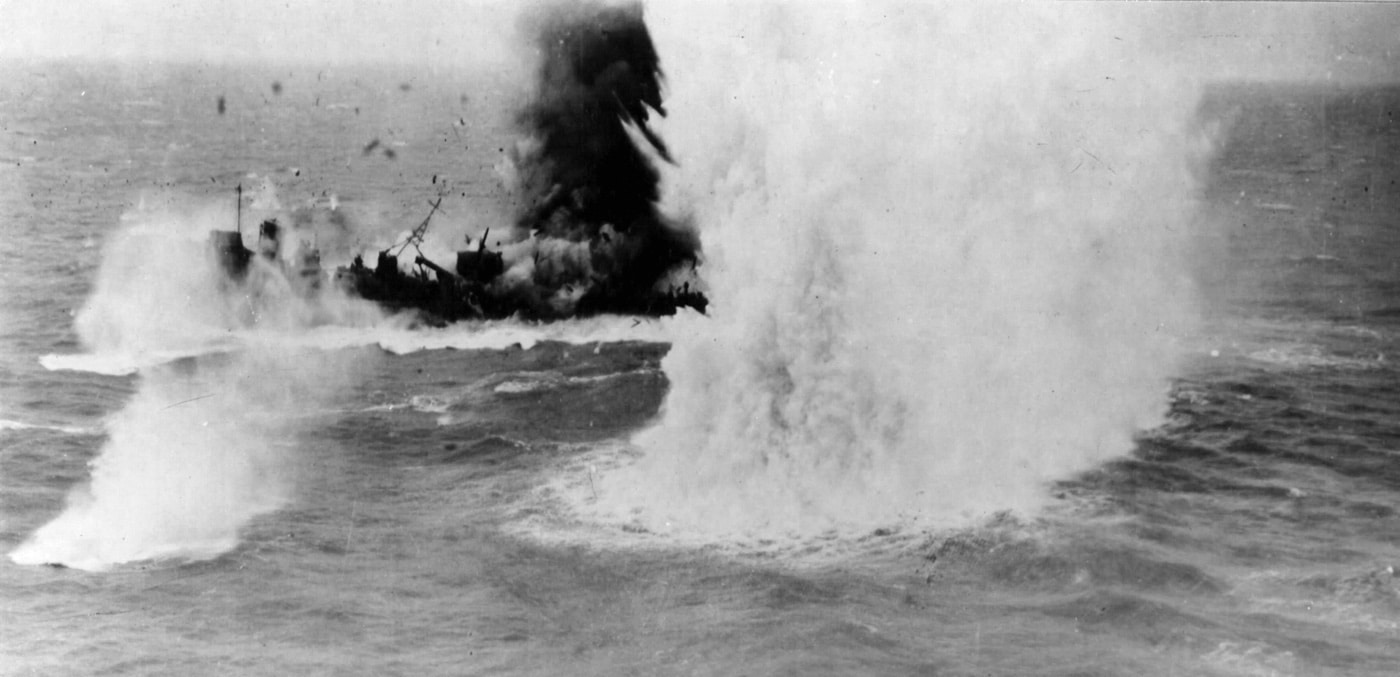
Shattered by .50 caliber strikes and pounded by bombs, a Japanese freighter comes apart after attacks by B-25 gunships. Image: NARA
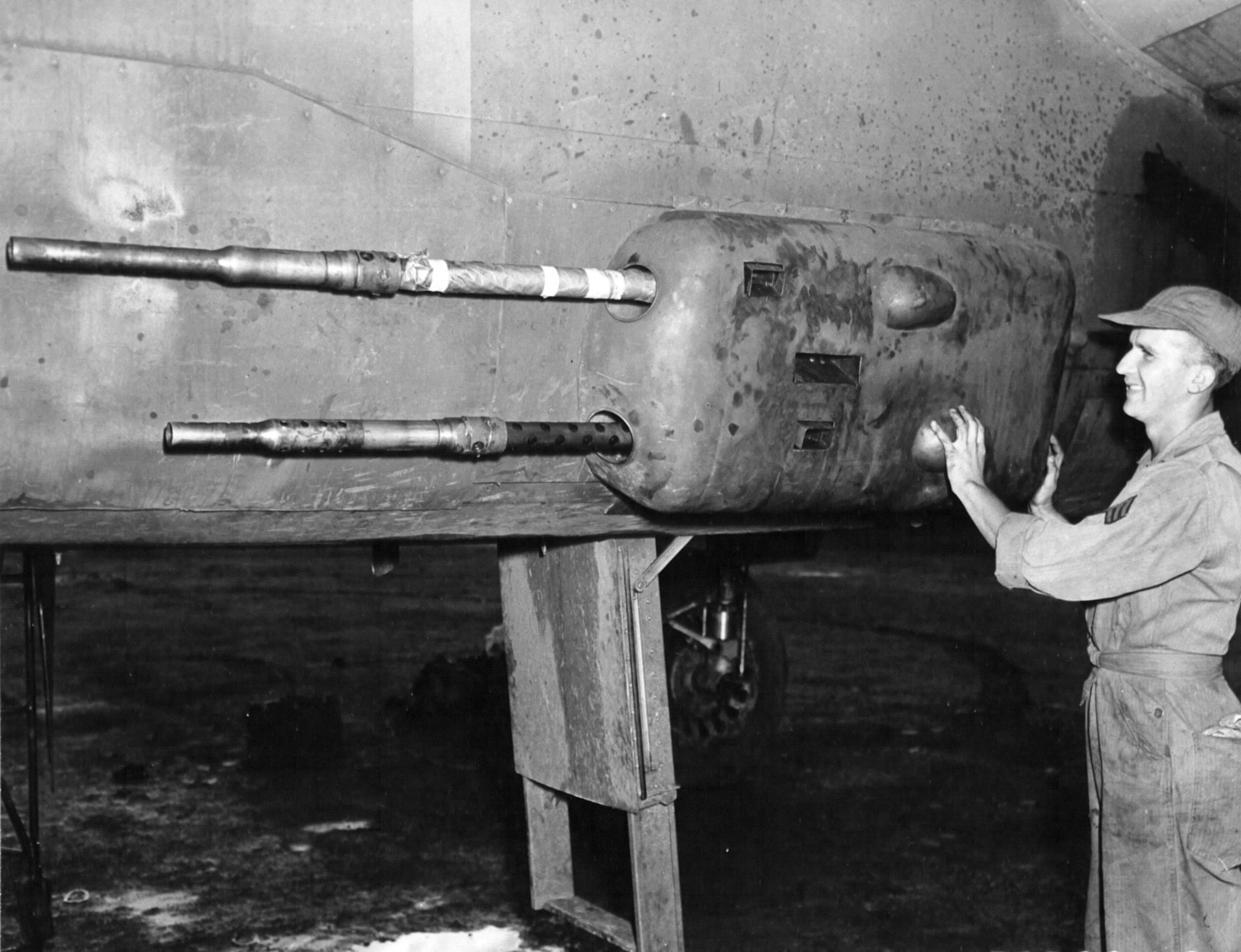
The original, field-made cheek packages featured lengthened barrel jackets and flash/blast protectors. Note the ejection ports for the spent casings and belt links. Image: NARA
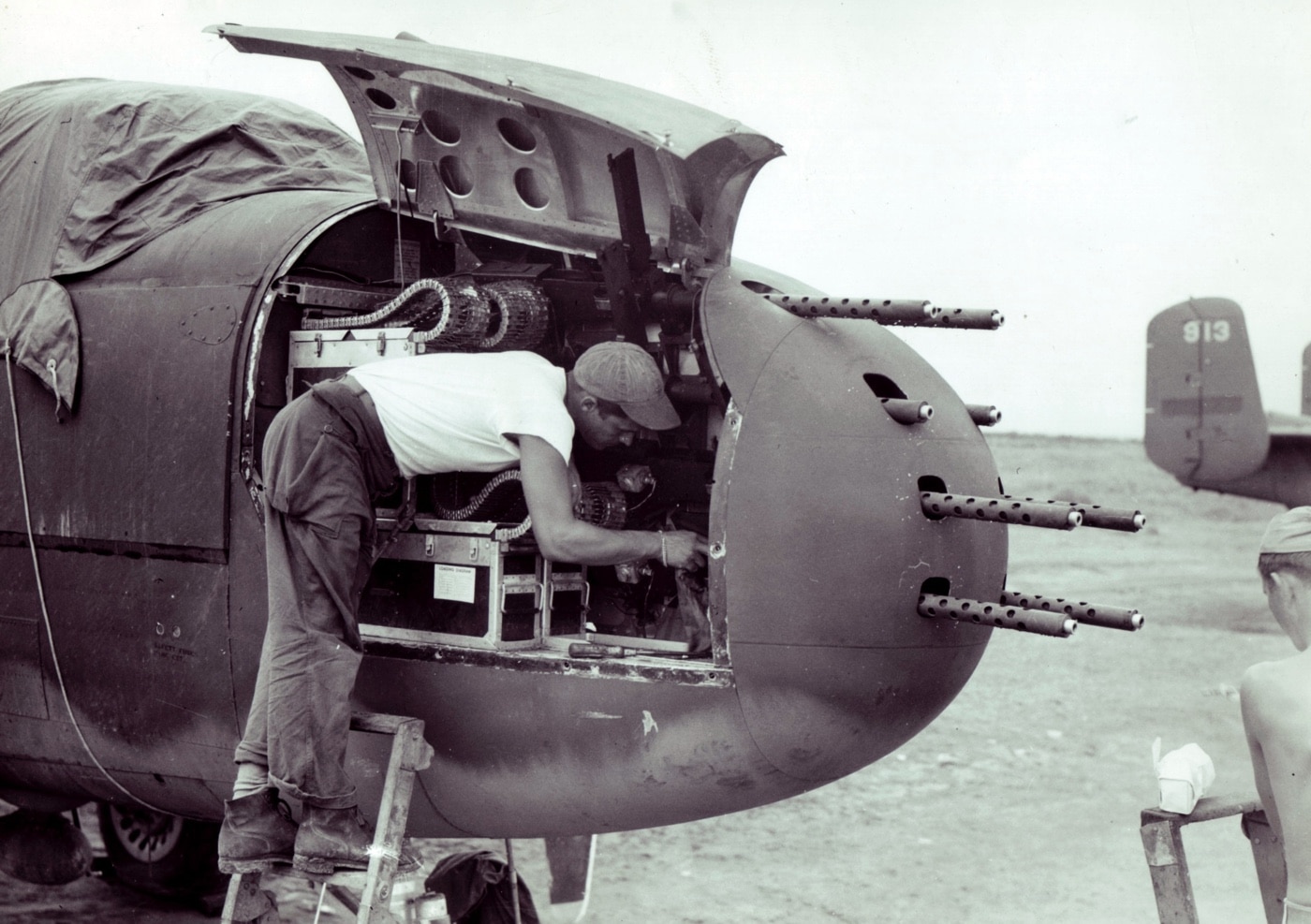
The B-25J-2 appeared late in the war with an eight-gun package in a solid nose. The fuselage-mounted gun pods could also be added to give the Mitchell 12 forward-firing .50-caliber guns. Image: NARA
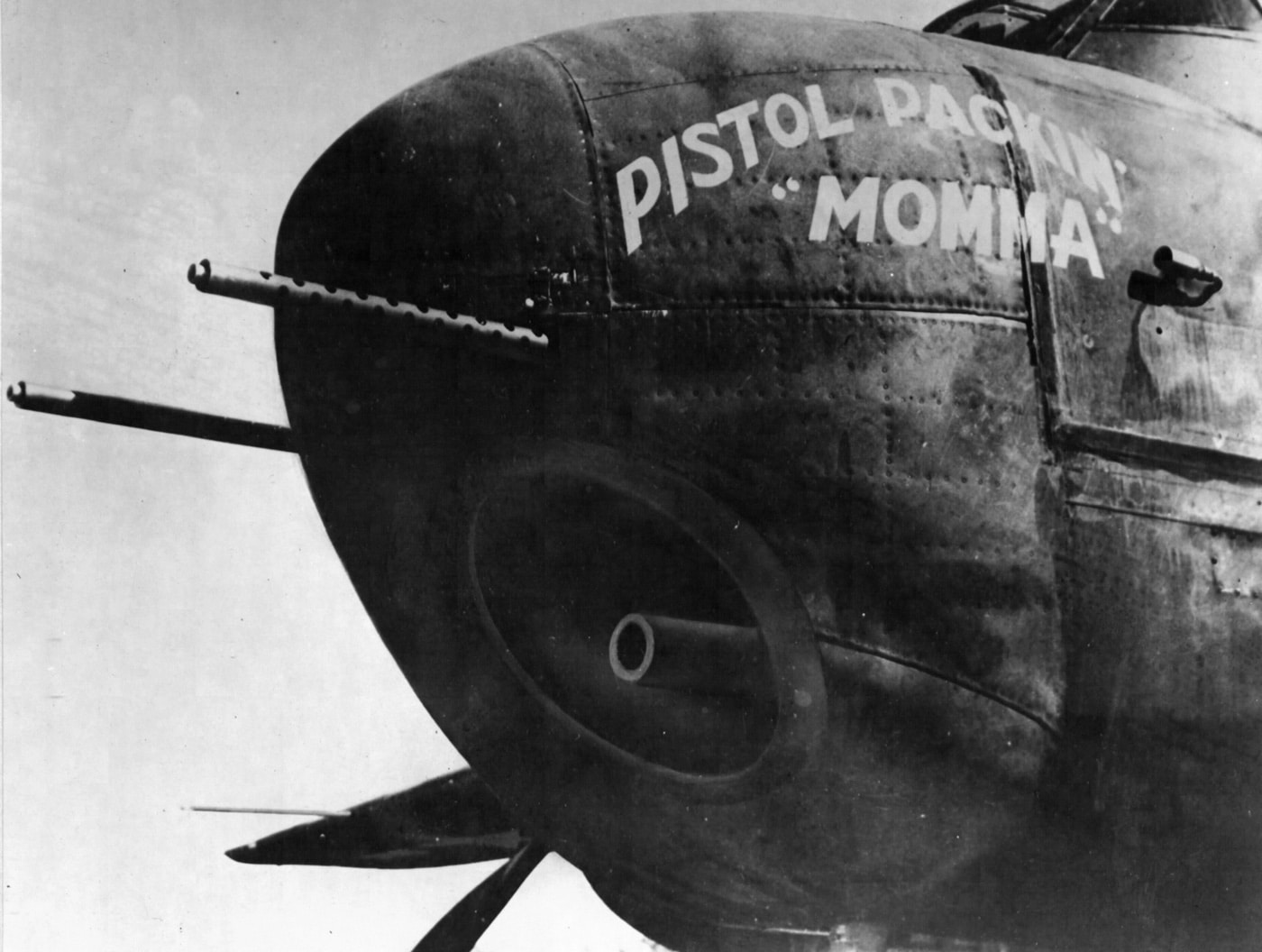
This B-25G, “Pistol-Packin’ Mama,” shows off her 75mm M4 cannon and twin machine guns. The 75mm cannon’s breech was behind the pilot’s seat and was manually loaded by the navigator. Image: NARA
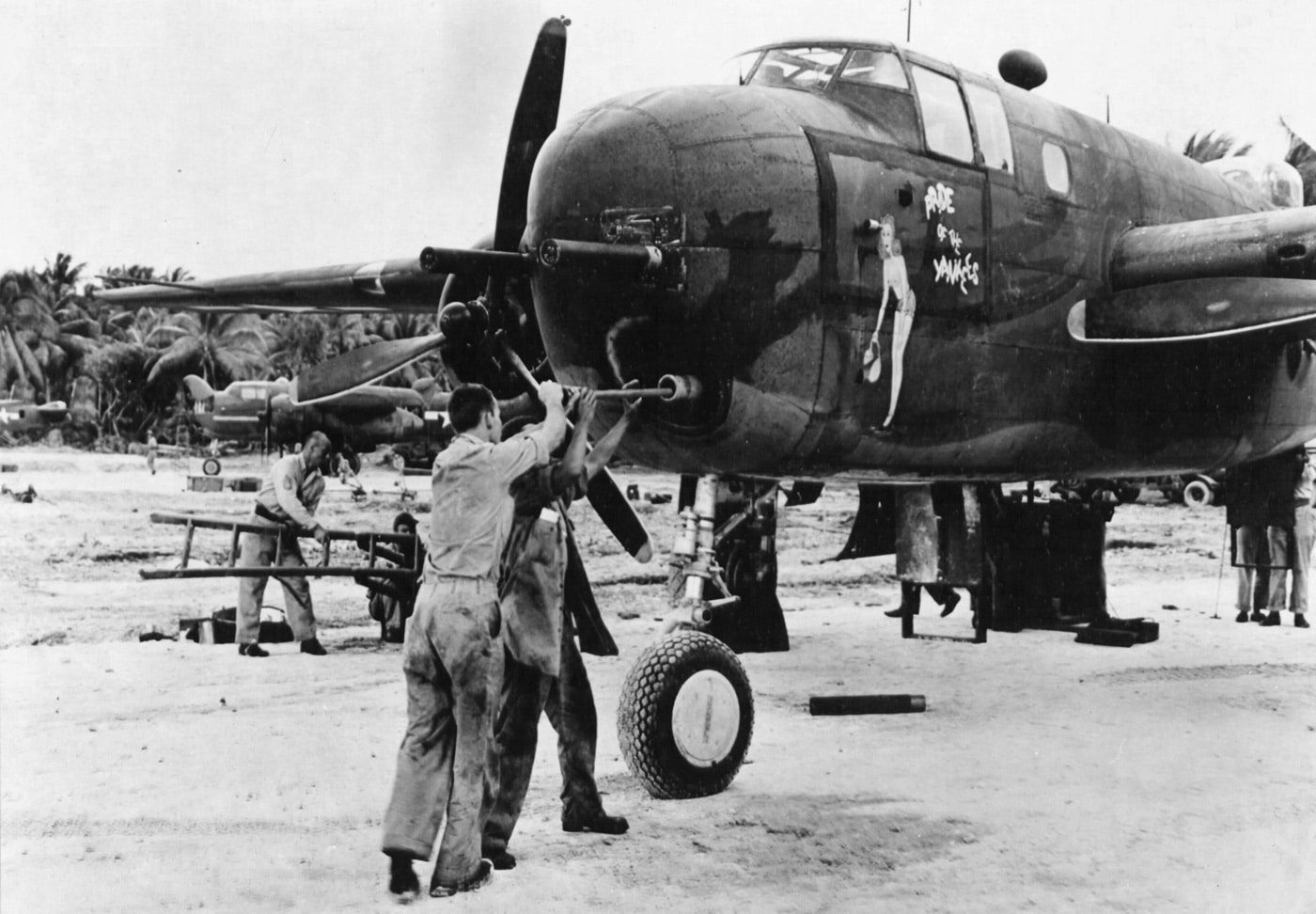
The crew of “Pride of the Yankees” clean their M4 75mm cannon on Tarawa, 1944. Two cannon shell shipping tubes provide convenient muzzle covers for the twin .50 cal MGs in the nose. Image: NARA
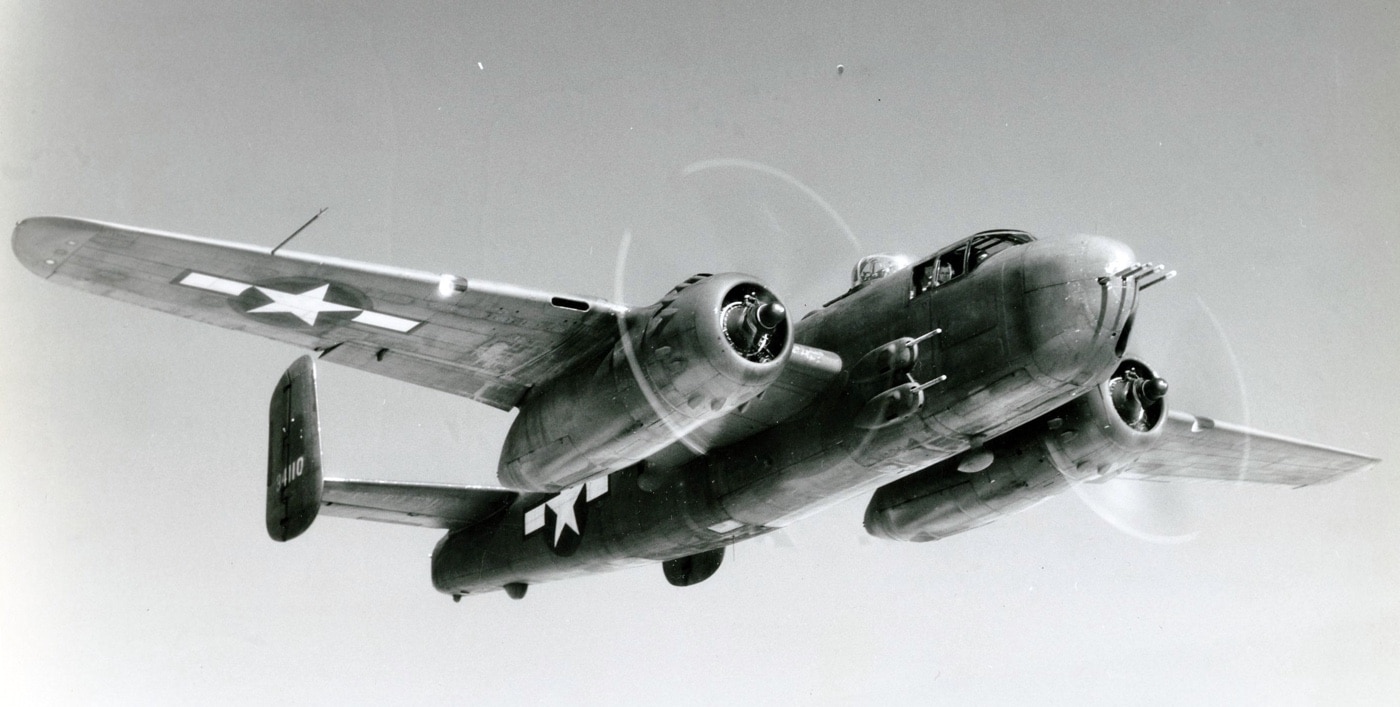
A factory-fresh B-25H with full armament, including 8x .50 cal MGs fixed to fire forward, and the new, lighter T13E1 75mm aircraft cannon. Image: NARA




